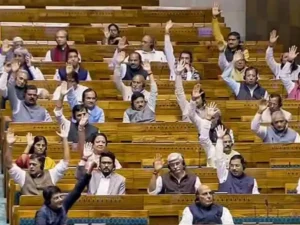Aim of Ease of doing Business
The Repealing and Amending Bill, 2023, recently cleared by the Rajya Sabha, marks another significant step in the government’s ongoing efforts to streamline and modernize India’s legal framework. The passage of this bill, which aims to repeal 76 redundant and obsolete laws, underscores the commitment to enhancing the ease of living and doing business in the country.
Lok Sabha Already Cleared the Bill
Initiated with the introduction of the Repealing and Amending Bill in December of the previous year, the legislative journey witnessed its culmination in the upper house with a voice vote. The Lok Sabha had already passed the bill on July 27 during the monsoon session, emphasizing the cross-party consensus on the necessity of removing outdated statutes.
The original bill sought to eliminate 65 antiquated laws, reflecting the government’s proactive approach to legal reform. However, due to procedural delays and the evolving legislative landscape, an amendment was proposed to incorporate an additional 11 laws into the repeal list, bringing the total to 76. This dynamic adjustment showcases the adaptability of the legislative process to address emerging needs.
Laws to remain Relevant
Among the laws marked for repeal are notable pieces of legislation such as the Land Acquisition (Mines) Act, 1885, and the Telegraph Wires (Unlawful Possession) Act, 1950. These antiquated statutes, rooted in historical contexts, have become obsolete in the face of modern challenges and evolving societal norms. The decision to remove them from the legal framework reflects a commitment to ensuring that laws remain relevant and effective.
Furthermore, the bill includes the repeal of certain Appropriation Acts passed by Parliament in recent years. This move aligns with the government’s broader agenda of fiscal prudence and streamlining budgetary processes. By eliminating outdated appropriation laws, the government aims to enhance financial governance and create a more responsive and adaptable fiscal environment.
Debate and Discussions in Rajya Sabha 
Law Minister Arjun Ram Meghwal, a proponent of the bill, lauded its passage in the upper house, emphasizing its significance in the larger context of improving the ease of living and doing business. Meghwal highlighted that the Modi government, since assuming power in 2014, has repealed a total of 1,486 defunct laws. With the addition of 76 more laws in this latest bill, the tally now stands at 1,562 repealed laws.
Government’s Effective Commitment
This legislative milestone reflects a commitment to effective governance, responsiveness to societal needs, and a willingness to shed archaic legal frameworks. The government’s proactive stance in repealing obsolete laws underscores its dedication to fostering an environment where citizens and businesses can thrive without unnecessary legal complexities.
Evolving Nature of India’s Legal Landscape
The legislative process leading to the passage of the Repealing and Amending Bill, 2023, also sheds light on the evolving nature of India’s legal landscape. The decision to incorporate additional laws into the repeal list underscores the government’s attentiveness to the changing needs of society and the economy. This adaptability is crucial in maintaining a legal system that is not only robust but also responsive to the dynamic challenges of the 21st century.
While the focus of this legislative effort is on repealing outdated laws, it is equally important to acknowledge the broader implications of such initiatives. Beyond the immediate benefits of eliminating legal clutter, these efforts contribute to a more transparent, efficient, and accountable governance system. They send a positive signal to both domestic and international stakeholders about India’s commitment to legal reform and creating an environment conducive to investment and growth.
A Move for Transparency and Business-Friendly Environment
The successful passage of the Repealing and Amending Bill, 2023, should be seen as a part of a larger narrative of legal reforms undertaken by the government. It adds to the legacy of initiatives aimed at simplifying regulatory frameworks, enhancing transparency, and promoting a business-friendly environment. Such endeavors are integral to India’s aspiration of becoming a global economic powerhouse and attracting investments on a larger scale.
Way Ahead
The repeal of 76 redundant and obsolete laws through the Repealing and Amending Bill, 2023, is a commendable step towards a more responsive, efficient, and contemporary legal system. This legislative milestone reflects the government’s commitment to continual improvement, fostering an environment where citizens and businesses can navigate the legal landscape with ease. As India continues its journey of legal reform, the passage of this bill stands out as a testament to the nation’s dedication to embracing change and ensuring that its legal framework remains relevant and effective in the years to come.










